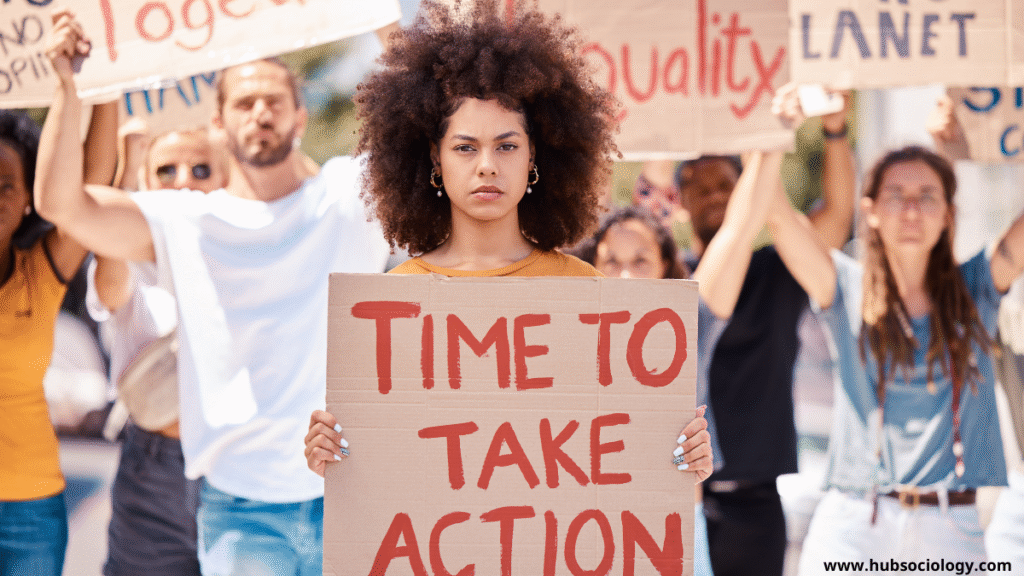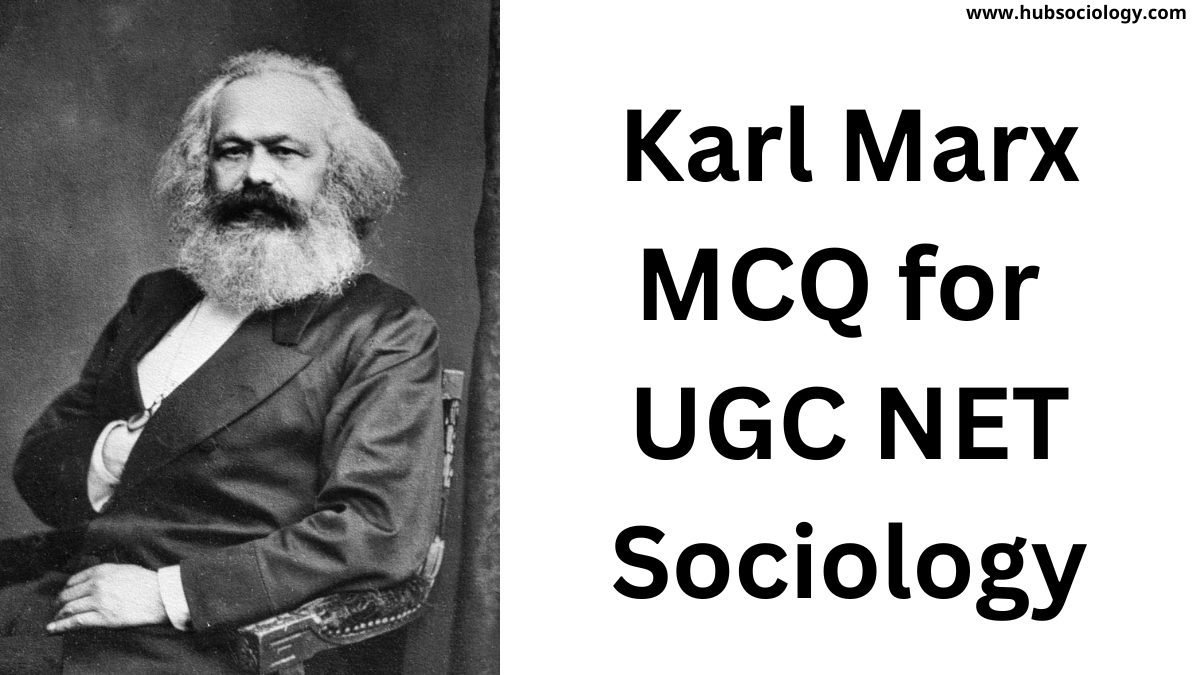Introduction to Karl Marx
Karl Marx (1818–1883) was a German philosopher, economist, and revolutionary socialist whose ideas profoundly shaped modern sociology, political theory, and economic thought. Alongside Friedrich Engels, Marx developed Marxism, a critical framework for analyzing class struggle, capitalism, and social change. His most influential works include The Communist Manifesto (1848) and Das Kapital (1867), which critique capitalist exploitation and advocate for a classless society.
Marx’s theory of historical materialism argues that material conditions and economic relations form the “base” of society, while institutions like religion, law, and politics constitute the “superstructure.” He viewed history as a series of class struggles, culminating in the proletariat (working class) overthrowing the bourgeoisie (capitalist class) to establish communism. Key Marxian concepts include:
- Alienation: Workers’ loss of control over labor under capitalism.
- Surplus Value: Profit extracted from unpaid labor.
- Dialectical Materialism: Social change through contradictions in economic systems.
- Ideology: Dominant ideas that justify ruling-class power.
Marx predicted capitalism’s collapse due to inherent crises (e.g., falling profit rates, overproduction) and its replacement by socialism, eventually leading to a stateless, egalitarian communist society. Though critiqued for economic determinism, Marx’s ideas remain foundational in conflict theory, inspiring labor movements, revolutions (e.g., Russia 1917), and critical sociology. His analysis of inequality, exploitation, and power dynamics continues to influence debates on globalization, neoliberalism, and social justice.
For UGC NET Sociology, understanding Marx’s theories is essential for topics like social stratification, political sociology, and economic sociology. His work challenges functionalist views, emphasizing structural oppression and revolutionary change.
1. Karl Marx was born in which year?
a) 1818
b) 1820
c) 1815
d) 1825
Answer: a) 1818
2. Marx’s famous work The Communist Manifesto was co-authored with:
a) Max Weber
b) Friedrich Engels
c) Emile Durkheim
d) Georg Hegel
Answer: b) Friedrich Engels
3. According to Karl Marx, the driving force of history is:
a) Religion
b) Class struggle
c) Technological advancement
d) Political power
Answer: b) Class struggle

4. Karl Marx’s theory of historical materialism suggests that:
a) Ideas shape material conditions
b) Material conditions shape ideas
c) Religion determines economic structure
d) Politics is independent of economics
Answer: b) Material conditions shape ideas
5. The term “Proletariat” in Marx’s theory refers to:
a) The capitalist class
b) The working class
c) The middle class
d) The feudal lords
Answer: b) The working class
6. The term “Bourgeoisie” refers to:
a) The working class
b) The capitalist class
c) The feudal class
d) The peasantry
Answer: b) The capitalist class
7. According to Karl Marx, alienation of workers occurs in:
a) Feudal society
b) Capitalist society
c) Socialist society
d) Primitive communism
Answer: b) Capitalist society
8. Karl Marx argued that the base of society consists of:
a) Political institutions
b) Economic relations of production
c) Cultural norms
d) Religious beliefs
Answer: b) Economic relations of production
9. The superstructure in Marx’s theory includes:
a) Means of production
b) Religion, law, and politics
c) Labor power
d) Factories and machinery
Answer: b) Religion, law, and politics
10. Karl Marx believed that the state in a capitalist society functions as:
a) A neutral institution
b) A tool of the working class
c) An instrument of the bourgeoisie
d) A religious authority
Answer: c) An instrument of the bourgeoisie
11. Das Kapital is Karl Marx’s work primarily about:
a) Political revolution
b) Critique of capitalism
c) Religion and society
d) Feudalism
Answer: b) Critique of capitalism
12. According to Karl Marx, surplus value is:
a) The profit earned by workers
b) The extra value extracted from labor by capitalists
c) Government tax revenue
d) Investment in infrastructure
Answer: b) The extra value extracted from labor by capitalists
13. Karl Marx’s concept of false consciousness refers to:
a) Workers’ awareness of exploitation
b) Workers’ misunderstanding of their true class interests
c) Capitalists’ greed
d) Government propaganda
Answer: b) Workers’ misunderstanding of their true class interests
14. Karl Marx predicted that capitalism would be overthrown by:
a) A violent revolution by the proletariat
b) Reformist policies
c) Religious movements
d) Foreign intervention
Answer: a) A violent revolution by the proletariat
15. Karl Marx called the final stage of historical development:
a) Socialism
b) Communism
c) Capitalism
d) Feudalism
Answer: b) Communism
16. According to Karl Marx, ideology serves to:
a) Liberate the working class
b) Justify and perpetuate class domination
c) Promote democracy
d) Encourage scientific thinking
Answer: b) Justify and perpetuate class domination
17. Karl Marx’s theory of dialectical materialism was influenced by:
a) Max Weber
b) Emile Durkheim
c) Georg Hegel
d) Auguste Comte
Answer: c) Georg Hegel
18. Which of the following is NOT a feature of Marx’s primitive communism?
a) Classless society
b) Private property
c) Collective ownership
d) Hunting-gathering economy
Answer: b) Private property
19. Karl Marx argued that religion is:
a) The foundation of society
b) The opium of the masses
c) A tool for liberation
d) Independent of economic conditions
Answer: b) The opium of the masses

20. According to Karl Marx, the transition from feudalism to capitalism was driven by:
a) Religious reforms
b) Industrialization and bourgeoisie rise
c) Peasant revolts
d) State policies
Answer: b) Industrialization and bourgeoisie rise
21. Karl Marx’s concept of commodity fetishism refers to:
a) Worship of consumer goods
b) Social relations appearing as relations between things
c) Religious idol worship
d) Capitalist philanthropy
Answer: b) Social relations appearing as relations between things
22. Which of the following is a criticism of Marx’s theory?
a) Overemphasis on economic determinism
b) Ignoring class conflict
c) Supporting capitalism
d) Rejecting materialism
Answer: a) Overemphasis on economic determinism
23. Marx’s theory is most aligned with which sociological perspective?
a) Functionalism
b) Conflict theory
c) Symbolic interactionism
d) Feminism
Answer: b) Conflict theory
24. According to Karl Marx, exploitation occurs because:
a) Workers are paid less than the value they produce
b) Workers are uneducated
c) Capitalists are generous
d) Government intervenes
Answer: a) Workers are paid less than the value they produce
25. Marx’s labor theory of value states that the value of a commodity is determined by:
a) Market demand
b) The labor required to produce it
c) Capitalist profits
d) Government policies
Answer: b) The labor required to produce it
26. Which of the following thinkers was a major influence on Karl Marx?
a) Adam Smith
b) Max Weber
c) Emile Durkheim
d) Talcott Parsons
Answer: a) Adam Smith
27. Karl Marx believed that under communism:
a) The state would become stronger
b) There would be no state
c) Capitalism would flourish
d) Religion would dominate
Answer: b) There would be no state
28. The mode of production includes:
a) Only the means of production
b) Means of production + relations of production
c) Only ideology
d) Political institutions
Answer: b) Means of production + relations of production
29. Marx’s theory is often contrasted with which other classical sociologist?
a) Max Weber
b) Auguste Comte
c) Herbert Spencer
d) George Simmel
Answer: a) Max Weber
30. Which of the following is NOT a stage in Marx’s historical materialism?
a) Primitive communism
b) Feudalism
c) Capitalism
d) Postmodernism
Answer: d) Postmodernism
31. Marx argued that capitalism creates:
a) Economic equality
b) Increasing class polarization
c) Elimination of poverty
d) Religious harmony
Answer: b) Increasing class polarization
32. The dictatorship of the proletariat refers to:
a) Rule by capitalists
b) A temporary workers’ state before communism
c) Feudal monarchy
d) Anarchism
Answer: b) A temporary workers’ state before communism
33. Marx’s analysis of society is primarily:
a) Micro-level
b) Macro-level
c) Psychological
d) Cultural
Answer: b) Macro-level
34. According to Marx, the reserve army of labor refers to:
a) Skilled workers
b) Unemployed workers used to suppress wages
c) Government employees
d) Soldiers
Answer: b) Unemployed workers used to suppress wages
35. Marx’s concept of praxis means:
a) Theoretical knowledge
b) Practical revolutionary activity
c) Religious rituals
d) Capitalist investment
Answer: b) Practical revolutionary activity
36. Which book did Marx critique political economy in?
a) The Communist Manifesto
b) Das Kapital
c) The German Ideology
d) The Poverty of Philosophy
Answer: b) Das Kapital
37. Marx’s theory emphasizes the role of:
a) Individual actions
b) Economic structures
c) Cultural symbols
d) Religious doctrines
Answer: b) Economic structures
38. According to Marx, ideology is:
a) A scientific truth
b) A distorted representation of reality
c) Independent of class interests
d) Always liberating
Answer: b) A distorted representation of reality
39. Marx’s theory is also known as:
a) Structural functionalism
b) Historical materialism
c) Symbolic interactionism
d) Rational choice theory
Answer: b) Historical materialism
40. The wage labor system in capitalism refers to:
a) Workers owning the means of production
b) Workers selling their labor for wages
c) Equal distribution of wealth
d) Feudal servitude
Answer: b) Workers selling their labor for wages
41. Marx argued that the capitalist system is inherently:
a) Stable
b) Crisis-prone
c) Egalitarian
d) Religious
Answer: b) Crisis-prone
42. Which of the following is a key element of Marx’s class analysis?
a) Income levels
b) Relationship to the means of production
c) Educational qualifications
d) Cultural preferences
Answer: b) Relationship to the means of production

43. Marx’s concept of species-being refers to:
a) Human potential under communism
b) Animal instincts
c) Capitalist greed
d) Religious salvation
Answer: a) Human potential under communism
44. According to Marx, the falling rate of profit is a tendency in:
a) Feudalism
b) Capitalism
c) Socialism
d) Primitive communism
Answer: b) Capitalism
45. Marx’s ideas were most influential in which century?
a) 18th
b) 19th
c) 20th
d) 21st
Answer: c) 20th
46. Which revolution is most associated with Marx’s ideas?
a) French Revolution
b) Russian Revolution (1917)
c) American Revolution
d) Industrial Revolution
Answer: b) Russian Revolution (1917)
47. Marx’s critique of capitalism includes all EXCEPT:
a) Exploitation
b) Alienation
c) Classless society
d) Eternal stability
Answer: d) Eternal stability
48. Marx argued that the family under capitalism serves to:
a) Promote gender equality
b) Maintain property relations
c) Abolish class distinctions
d) Encourage communal living
Answer: b) Maintain property relations
49. Which concept did Marx use to describe workers’ loss of control over their labor?
a) Exploitation
b) Alienation
c) Surplus value
d) Dialectics
Answer: b) Alienation
50. Marx’s vision of communism includes:
a) State control of everything
b) A classless, stateless society
c) Continued wage labor
d) Religious dominance
Answer: b) A classless, stateless society
Do you like this this Article ? You Can follow as on :-
Facebook – https://www.facebook.com/hubsociology
Whatsapp Channel – https://whatsapp.com/channel/0029Vb6D8vGKWEKpJpu5QP0O
Gmail – hubsociology@gmail.com

2 thoughts on “Karl Marx MCQ for UGC NET Sociology”